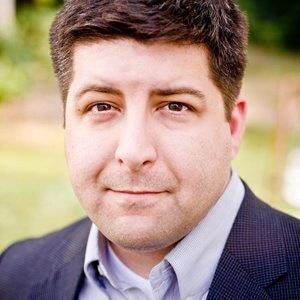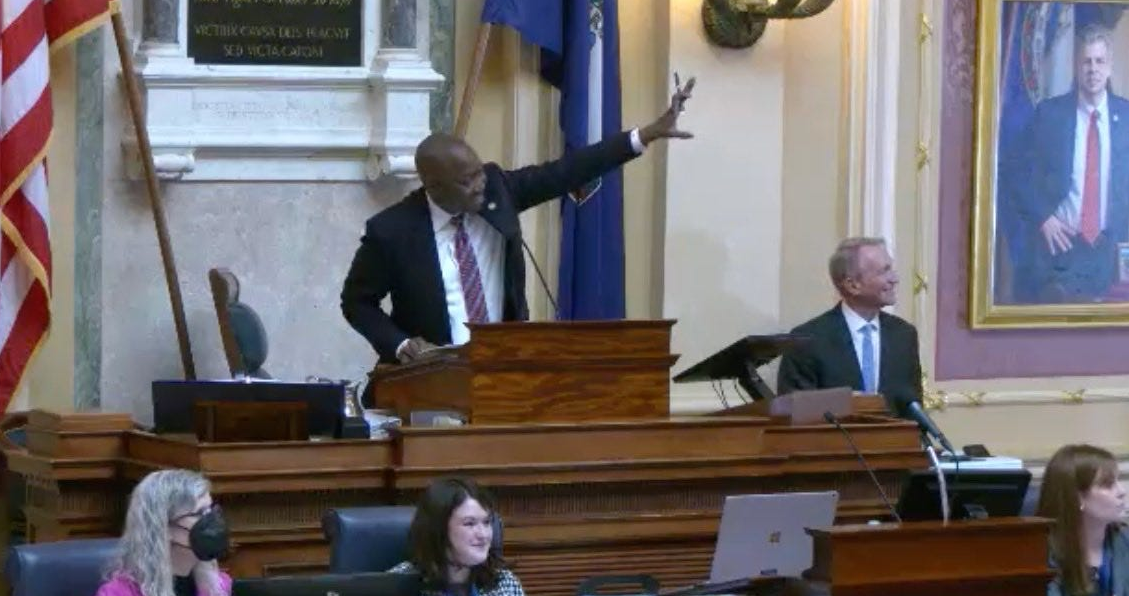
Just about everyone has seen the film Dead Poets Society. The scene with John Keating, played by Robin Williams, instructing his students to rip out the pages that reduce poetry to mere mathematics is one of the more iconic moments in the film, with students relishing the opportunity to vandalize their books.
Or more appropriately, pay the cultural vandals back in their own coin.
We live in a modern age which is quickly transitioning into a postmodern one, where the modern values of our grandfathers and our own are quickly being subsumed by a tradition that subordinates reason to emotion and feeling. Einfuhlung is a relatively new word, what we might call a neologism today. It roughly translates into the word that might define the difference between our grandfathers and our grandchildren: empathy.
Journalism in the last 50 years has taken a dark road. Enamored at first by Bob Woodward and Carl Bernstein’s hard-nosed investigative reporting on the Nixon administration and Ben Bradlee’s tutelage as an editor, what started out as a movement, pace Eric Hoffer, eventually became a business and descended into a racket.
Conservative readers instinctively feel locked out of most institutions. Media, entertainment, education, academia and the bureaucracy are all firmly held in the hands of the political left. The remaining two – churches and military plus first responders – are teetering. As journalism turned from a working class beat into a realm for cubicle dwellers, the consumption that typically destroys any good institution started by cashing out the public trust we put into our institutions. By the time social media arrived to gobble up the advertising revenue, there was little left for the vulture capitalists to pick clean from the carcass of the old dinosaur.
Yet in an era of parallel institutions such as MSNBC and FOX, we have lost something about the way we talk about politics, culture, entertainment, history and the like. Enveloped in our own silos, we tend to see the world a certain way.
One person wakes up, watches CNN, reads the Washington Post, listens to NPR. Another wakes up, watches FOX News, reads The Wall Street Journal, and listens to Joe Rogan via podcast. These two individuals bump into one another and have two extraordinarily different views on the world. Neither are insincere, nor are they playing with different decks of cards, but the cards dealt to them being different, they are quite sincere about the differences on how they view the deck based on the hands dealt to them by their own dealer – namely, themselves.
Cass Sunstein worried about precisely this phenomenon 20 years ago, and sadly it has taken root in our discourse about everything. When I say everything, I mean even down to where we shop and what sort of beer one drinks. In our grand effort to make everything anodyne and nonpartisan, we have oddly enough achieved the precise opposite. Not only does everything matter, everything is sharply partisan.
…and we wonder why anxiety among the young is higher than ever.
One person wakes up, watches CNN, reads the Washington Post, listens to NPR. Another wakes up, watches FOX News, reads The Wall Street Journal, and listens to Joe Rogan via podcast. These two individuals bump into one another and have two extraordinarily different views on the world.
The consequences are rather stark. We have made the trivial political, and the serious so nonpolitical as to be considered dangerous to discuss such questions, then dare to call such a system a democracy. We have turned disagreement into hate speech, nuance into fascism, the common good to communism, and dangerously enough see the smoke of violence entering our discourse.
Nonpartisan discourse has destroyed what makes America – and particularly, Virginia – the miracle that we are. Not because we are a place, but because we are a people, diverse and beautiful, sometimes incredibly wrong and obtuse, but on the whole inseparable from the belief that there is no problem created by human beings that cannot be resolved by human beings.
Fredericksburg itself is a community of stories and characters, from the Rappahannock tribe to Ferry Farm, through the Battle of Fredericksburg which destroyed the town, to its rebirth around the Sylvania Plant and its emergence from tourism center to Washington exurbia. Here is the birthplace of the Virginia Statute for Religious Freedom. Here is where the Father of our Country built his character. Here is where hundreds of thousands of men sacrificed themselves on the altar of freedom to decide the fate of millions not yet born in a port city where thousands would have their freedom denied.
These are not merely dry marks in a dusty history book, but human stories from a cast of characters with roots deep into a rich earth. Our history and these stories do not exist to be whitewashed, but rather exist to be told, shared, loved, even hated. Yet most of all, talked about.
Here is where the Father of our Country built his character. Here is where hundreds of thousands of men sacrificed themselves on the altar of freedom to decide the fate of millions not yet born in a port city where thousands would have their freedom denied.
The dawn of social media has to a large degree vandalized our common spaces, and perhaps more damningly the way we talk to one another in the public square. Restoring that conversation starts first and foremost by telling stories and refusing to see one another in the dry and sclerotic vandalism which reduces the complexity and beauty of people into talking points.
When I first met Marty Davis, you could tell instantly that this was a man who gave a damn about people. More than this, Marty cared about readers and the craft of good writing, not for its own sake but to tell a story that mattered. This was writing in the tradition of the Free Lance-Star’s Paul Akers, who mentored my own op-ed writing as a young man.
This was writing in the tradition of H.L. Mencken and Woodward and Bernstein, writing that saw the cultural vandals of our time and resisted with the power of the pen. Writing which encouraged readers to take that page, and if it didn’t ask the deeper questions and sought to manipulate rather than serve others, rip it out of the book.
More than this, when we do find areas of disagreement, our maxim here at The Advance is to ask the more interesting questions – or as we call it, the “why behind the why” as to what others believe. After all, if we agreed on everything, the world would be boring indeed. Yet there are 8 billion people in this world, all playing with different hands from a deck as large as the universe. That should inspire intellectual curiosity in us, not fear or disagreement, and certainly not coercion trying to force someone else to believe their straight is really a full house.
Thus we give you the Fredericksburg Advance, surrounded by a salon of Fredericksburg thinkers and writers who love this community and share a love of deep opinions: to create an open and public square placing the reader first. More than this, Einfuhlung – empathy – for one another and the viewpoints that make the world interesting. There will be disagreement; this is good. There will be contrasting opinions; as a conservative, it is about time. More than this, there will be people who live here writing about the things that matter, and for myself, that is no small thing.
If that is the sort of journalism you believe (as we do) has been lost in Fredericksburg, I invite you personally to CLICK HERE and join the Fredericksburg Advance as a subscriber though our Substack newsletter.
Thank you for reading. Most of all, thank you for sharing our love for this little place called home.





